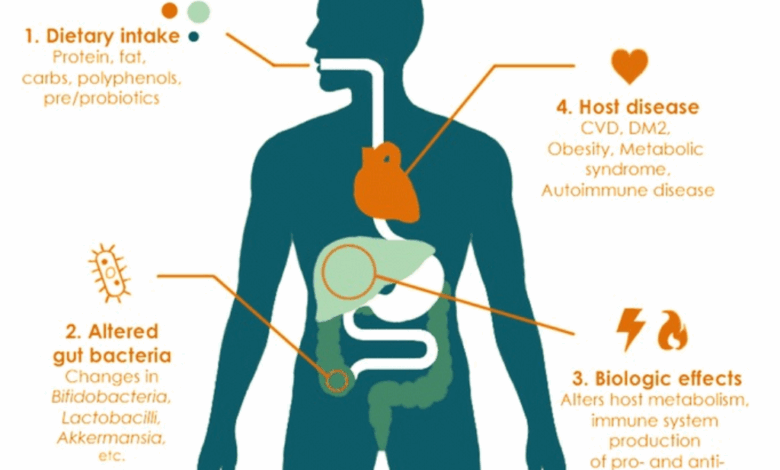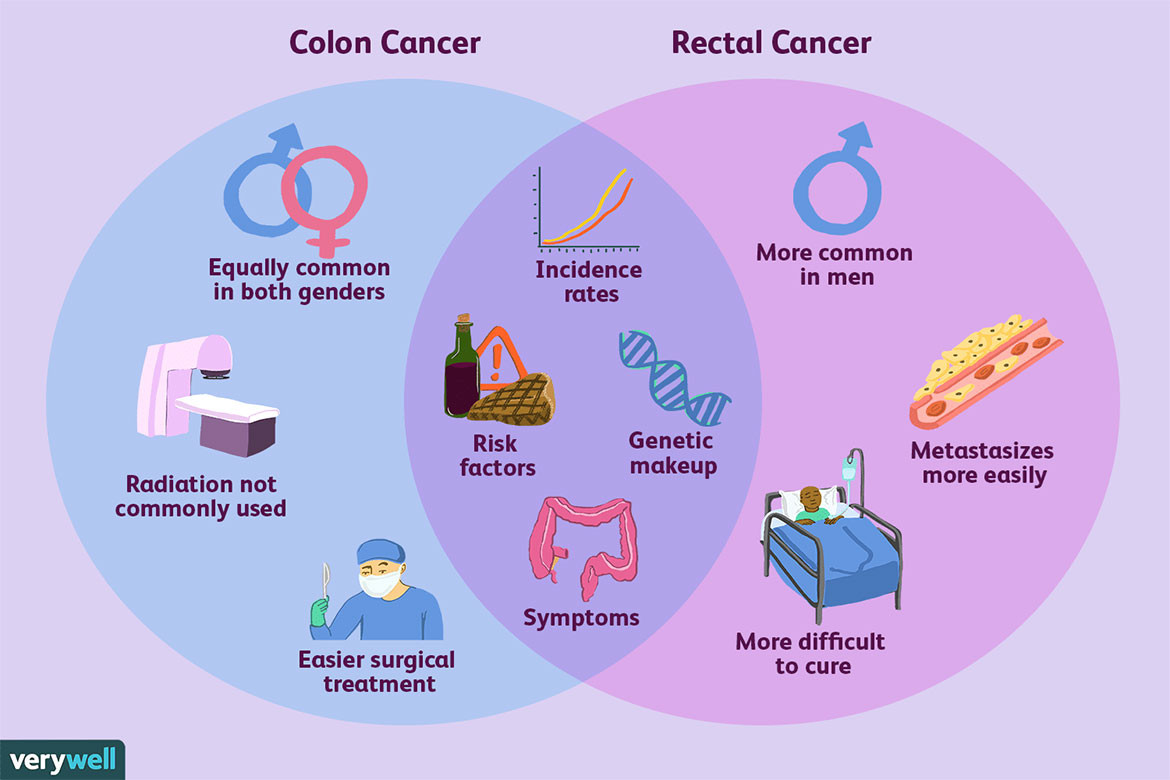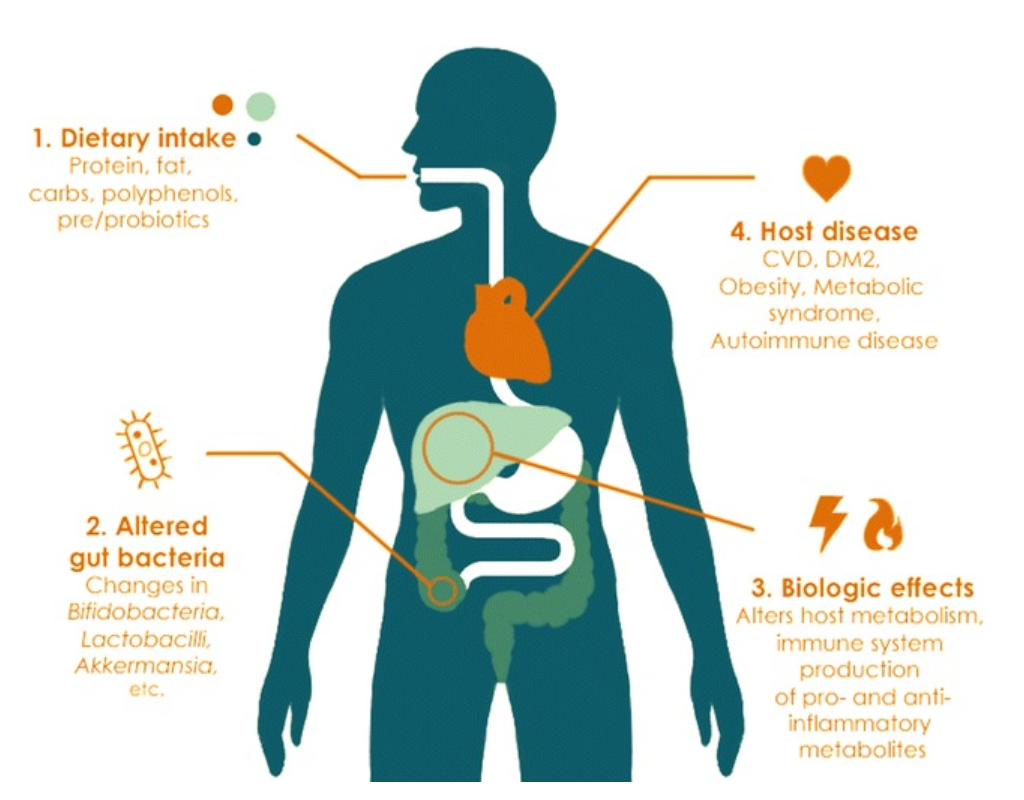
Why are more young people getting colorectal cancer? This alarming trend demands our attention. Lifestyle choices, environmental factors, genetics, and even medical history all play a role in this concerning rise. We’ll delve into the potential causes, from diet and exercise to environmental toxins and inherited predispositions, to better understand this complex issue and what we can do to address it.
This investigation explores potential lifestyle factors, environmental exposures, genetic predispositions, medical conditions and treatments, and public health initiatives to provide a comprehensive understanding of the issue. We’ll look at the potential links between specific dietary habits and colorectal cancer risk in young adults, examining the role of physical inactivity and sedentary behaviors. Additionally, we’ll examine the impact of environmental exposures, including air pollution and exposure to chemicals, on colorectal cancer risk in young adults.
Lifestyle Factors

The rising incidence of colorectal cancer in young adults is a significant public health concern. While genetics play a role, lifestyle factors are increasingly recognized as contributing factors. Understanding these factors is crucial for prevention and early detection strategies. This exploration dives into potential lifestyle links, highlighting the importance of proactive choices in mitigating risk.Lifestyle choices significantly influence colorectal cancer risk, especially in younger demographics.
Factors like diet, exercise, stress levels, and sleep patterns all intertwine to impact overall health and, potentially, cancer development. This discussion examines the correlation between these lifestyle aspects and colorectal cancer in young adults.
Dietary Habits
Dietary habits play a vital role in overall health and, potentially, colorectal cancer risk. A diet rich in processed foods, red meat, and unhealthy fats may increase the risk, while a diet rich in fruits, vegetables, and whole grains may offer some protective benefits. Observational studies suggest correlations between specific dietary patterns and colorectal cancer incidence.
- Processed foods are often high in preservatives, additives, and unhealthy fats. These compounds may disrupt cellular processes and contribute to inflammation, potentially increasing cancer risk. Examples include processed meats (bacon, sausage), packaged snacks, and highly refined carbohydrates. These foods are often part of a fast-paced lifestyle, leading to high consumption in young adults.
- Red meat consumption, especially processed red meat, has been linked to an increased risk of colorectal cancer. The presence of heterocyclic amines (HCAs) and polycyclic aromatic hydrocarbons (PAHs) formed during cooking may be contributing factors. Alternatives like poultry or fish, when incorporated into a balanced diet, may present a lower risk.
- A diet deficient in fruits and vegetables, known for their high antioxidant content, may be a contributing factor. Antioxidants help neutralize free radicals that can damage cells, potentially reducing cancer risk. A diet lacking in fiber may also contribute to issues with digestion and gut health.
Physical Activity and Sedentary Behaviors
Physical inactivity and prolonged sedentary behaviors are associated with increased risk for various health problems, including colorectal cancer. The link between limited physical activity and cancer development is not fully understood but likely involves metabolic and hormonal changes.
- Prolonged sitting, a common characteristic of modern lifestyles, can lead to poor metabolic health, including elevated insulin levels and inflammation. These conditions are potential risk factors for cancer development. Studies suggest a strong correlation between sedentary behavior and colorectal cancer, particularly in young adults with limited physical activity.
- Physical activity helps maintain a healthy weight, reduce inflammation, and improve metabolic function. Regular exercise can potentially decrease the risk of colorectal cancer development. Engaging in regular physical activity, even moderate-intensity exercise, can significantly reduce risk.
Stress and Mental Health
Stress and mental health conditions can impact the immune system and hormonal balance, potentially influencing the development of various diseases, including colorectal cancer.
- Chronic stress can lead to elevated levels of cortisol, a hormone that, when persistently high, may affect cellular processes and potentially contribute to inflammation. Stressful life events and mental health conditions, such as depression and anxiety, are often correlated with increased cancer risk in many studies.
- Mental health conditions like depression and anxiety can also indirectly affect lifestyle choices, potentially increasing the risk of colorectal cancer. Poor dietary habits, reduced physical activity, and sleep disturbances are commonly observed in individuals experiencing these conditions.
Dietary Habits Comparison
| Dietary Habit | Young Adults with Colorectal Cancer | Young Adults without Colorectal Cancer |
|---|---|---|
| Processed Food Consumption | Higher | Lower |
| Red Meat Consumption | Higher | Lower |
| Fruits and Vegetable Consumption | Lower | Higher |
| Fiber-Rich Food Consumption | Lower | Higher |
| Hydration | Potentially Lower | Potentially Higher |
Note: This table represents potential differences, and individual experiences may vary. Further research is needed to definitively establish correlations.
Environmental Exposures

Beyond lifestyle choices, environmental factors can significantly influence colorectal cancer risk, particularly in younger individuals. Exposure to certain pollutants and chemicals can disrupt cellular processes, potentially contributing to the development of this disease. Understanding these exposures is crucial for identifying preventative measures and targeting risk reduction strategies.
Potential Effects of Environmental Exposures, Why are more young people getting colorectal cancer
Environmental exposures, including air pollution and exposure to specific chemicals, can potentially disrupt cellular processes within the colon, increasing the risk of colorectal cancer development. Air pollution, laden with particulate matter and other harmful compounds, has been linked to various health issues, including inflammation and oxidative stress. These stressors can damage DNA and alter cellular function, creating an environment conducive to cancer development.
Exposure to certain industrial chemicals and pesticides has also been implicated in increasing colorectal cancer risk. The mechanisms by which these exposures contribute to colorectal cancer in young adults are complex and not fully understood, but the evidence suggests a correlation between environmental factors and the incidence of the disease.
Mechanisms of Environmental Contributions
Several potential mechanisms link environmental exposures to colorectal cancer development. One key mechanism involves oxidative stress. Exposure to pollutants and chemicals can generate reactive oxygen species (ROS), leading to DNA damage and cellular dysfunction. This damage can accumulate over time, potentially initiating or promoting the development of colorectal cancer. Inflammation is another significant factor.
Environmental exposures can trigger chronic inflammation in the colon, creating an environment that favors the growth of cancerous cells. Additionally, some environmental factors may disrupt hormonal balance, further increasing the risk of colorectal cancer. Understanding these complex interactions is critical for developing targeted interventions.
Environmental Toxins and Colorectal Cancer
The link between exposure to certain environmental toxins and colorectal cancer development in young adults is an area of active research. Studies have indicated a potential association between exposure to specific industrial chemicals and an elevated risk of colorectal cancer in this age group. While definitive causal links are still being established, the emerging evidence warrants further investigation into the specific toxins and the pathways through which they contribute to cancer development.
Occupational Exposures
Occupational exposures can also contribute to colorectal cancer risk in young adults. Certain professions, particularly those involving exposure to industrial chemicals or heavy metals, might pose a higher risk. For example, workers in the manufacturing or construction industries might experience elevated exposure to pollutants and hazardous substances. Understanding the specific occupational hazards associated with colorectal cancer risk in young adults is crucial for implementing appropriate safety measures and preventive strategies.
Table of Potential Environmental Exposures
| Potential Environmental Exposure | Potential Impact on Colorectal Cancer Risk ||—|—|| Air pollution (particulate matter, industrial emissions) | Increased oxidative stress, inflammation, DNA damage || Certain industrial chemicals | Disruption of cellular processes, oxidative stress || Pesticides and herbicides | Potential DNA damage, hormonal disruption || Heavy metals (lead, cadmium) | DNA damage, oxidative stress || Exposure to specific industrial solvents | Potential disruption of cellular processes |This table highlights some potential environmental exposures and their potential impacts on colorectal cancer risk.
Further research is needed to fully understand the specific mechanisms and extent of these associations. It’s important to note that the relationship between environmental exposure and colorectal cancer is complex and influenced by various factors, including individual susceptibility and lifestyle choices.
Genetic Predisposition and Family History
Beyond lifestyle choices and environmental factors, inherited genetic mutations play a significant role in the development of colorectal cancer, particularly in younger individuals. Understanding the role of family history and specific genetic syndromes is crucial for early detection and prevention strategies. This knowledge allows for targeted interventions and personalized approaches to cancer care for at-risk individuals.Inherited genetic mutations can significantly increase the risk of colorectal cancer in young adults.
These mutations often disrupt the normal functioning of genes involved in DNA repair, cell growth, and cell death. The presence of these mutations can lead to the accumulation of genetic damage in cells, increasing the likelihood of uncontrolled cell growth and the formation of tumors.
Inherited Genetic Mutations
Inherited mutations in specific genes can predispose individuals to colorectal cancer, even at a young age. These mutations can be passed down through families, increasing the risk for multiple family members. Commonly affected genes include APC, MUTYH, MLH1, MSH2, and others. These genes are crucial for regulating cell growth and preventing tumors. Mutations in these genes can disrupt these critical functions, leading to a higher risk of cancer development.
Family History and Increased Risk
A strong family history of colorectal cancer, particularly if the cancer developed at a young age in multiple family members, signifies a potential inherited predisposition. The presence of such a history can significantly increase the risk of colorectal cancer in younger individuals, sometimes even decades earlier than expected.
Genetic Syndromes Associated with Increased Risk
Certain genetic syndromes are strongly linked to an increased risk of colorectal cancer in young adults. These syndromes often involve multiple organ systems and present with various associated medical conditions. Familial adenomatous polyposis (FAP) is one such syndrome. Individuals with FAP develop numerous polyps in their colon, significantly increasing the risk of colorectal cancer. Other syndromes, like Lynch syndrome (also known as hereditary nonpolyposis colorectal cancer, HNPCC), also raise the risk of colorectal cancer.
The specific symptoms and associated cancers vary depending on the syndrome and the specific mutations involved.
It’s concerning that more young people are developing colorectal cancer. While the exact reasons are still being researched, lifestyle factors and potential genetic predispositions are definitely being considered. Interestingly, some studies are also exploring connections between mental health conditions like bipolar disorder, specifically mania, what is mania in bipolar , and an increased risk of certain cancers.
More research is needed to understand these potential links and how they might contribute to the rising rates of colorectal cancer in younger demographics.
Genetic Testing for Risk Assessment
Genetic testing plays a vital role in identifying individuals at higher risk of developing colorectal cancer. By analyzing an individual’s DNA, these tests can detect inherited mutations in genes associated with colorectal cancer. Individuals with a strong family history, those with multiple relatives diagnosed with colorectal cancer at a young age, or those with symptoms suggestive of a genetic syndrome should consider genetic testing.
This allows for proactive measures such as increased surveillance, preventative surgeries, and lifestyle adjustments to reduce their risk.
Comparison of Genetic Makeup
Comparing the genetic makeup of young adults with colorectal cancer to those without reveals significant differences. Individuals with colorectal cancer often have mutations in specific genes involved in DNA repair, cell cycle control, and apoptosis (programmed cell death). These mutations are frequently absent or present at lower frequencies in individuals without the disease. The presence of these mutations, often inherited from a parent, significantly increases the likelihood of colorectal cancer development in younger individuals.
Identifying these genetic differences can inform targeted prevention and treatment strategies.
Medical Conditions and Treatments
The impact of underlying medical conditions and treatments on colorectal cancer risk in young adults deserves careful consideration. While lifestyle factors and genetics play a role, the presence of certain medical conditions or the use of specific medications can significantly influence the development of this disease in younger individuals. Understanding these connections is crucial for early detection and proactive management.Certain pre-existing conditions can increase the risk of colorectal cancer in young adults, potentially by altering the gut environment or impacting immune function.
The effects of various treatments, including chemotherapy, radiation therapy, and immunosuppressant medications, can also have an impact. This is a complex area that requires careful investigation to identify potential risk factors and guide appropriate preventive measures.
Inflammatory Bowel Disease (IBD)
Inflammatory bowel disease (IBD), encompassing conditions like Crohn’s disease and ulcerative colitis, is strongly associated with an elevated risk of colorectal cancer. Chronic inflammation within the colon, a hallmark of IBD, can lead to cellular damage and mutations over time, increasing the likelihood of cancerous transformations. Long-term IBD patients, particularly those with extensive disease involvement or those who have had the condition for many years, are at a higher risk.
Effects of Treatments
Certain medications and treatments can influence the risk of colorectal cancer. For example, some immunosuppressants, used to manage autoimmune conditions, can potentially suppress the immune system’s ability to detect and eliminate precancerous cells. Similarly, radiation therapy to the abdomen or pelvis, while essential for treating various cancers, can increase the risk of colorectal cancer in the irradiated area.
It’s a bit of a mystery why more young people are getting colorectal cancer. Maybe it’s lifestyle factors, or perhaps genetics play a role. It’s certainly concerning. Speaking of health woes, have you ever wondered what the best time of day is to be sick? What is the best time of day to be sick might shed some light on that.
Regardless, understanding the causes behind this rising trend is crucial for prevention and better treatment options for all, young and old.
It’s important to note that the increased risk is often dependent on the dose, duration, and location of radiation exposure. Chemotherapy regimens, too, can have a secondary impact on colorectal cancer risk.
It’s a real worry that more young people are getting colorectal cancer. While the exact reasons are still being researched, some experts point to lifestyle factors like diet and lack of exercise. Interestingly, certain antibiotic treatments, like clindamycin hydrochloride oral capsule , can sometimes disrupt the gut microbiome, potentially playing a role in long-term health issues, including the development of colorectal cancer.
This is a complex issue, and more research is needed to understand the complete picture of what’s driving this concerning trend.
Prior Medical Conditions
The presence of certain medical conditions in a young adult’s history can serve as a significant risk factor for colorectal cancer. A history of polyps, particularly adenomatous polyps, is a well-established indicator of increased risk. These polyps can be precancerous and require careful monitoring and removal. Furthermore, a history of other cancers, particularly in young adults, can indicate a higher susceptibility to other cancers, including colorectal cancer, which warrants close monitoring.
Specific Treatments and Colorectal Cancer
Radiation therapy targeting the abdominal or pelvic area can induce DNA damage, potentially increasing the risk of colorectal cancer in the affected region. Similarly, certain medications, particularly immunosuppressants used to treat autoimmune conditions, can suppress the immune system’s ability to detect and destroy precancerous cells, potentially increasing the risk of colorectal cancer development. In cases where prior treatments involved chemotherapy or other medications, the risk may be dependent on the type, dosage, and duration of exposure.
Summary Table of Medical Conditions and Treatments
| Medical Condition/Treatment | Potential Impact on Colorectal Cancer Risk |
|---|---|
| Inflammatory Bowel Disease (IBD) | Increased risk, particularly with long-term, extensive disease |
| Immunosuppressant Medications | Potentially increased risk due to immune system suppression |
| Radiation Therapy (abdominal/pelvic) | Increased risk, especially with high doses and prolonged exposure |
| Prior Polyps (adenomatous) | Increased risk, requiring careful monitoring |
| History of Other Cancers | Potentially increased susceptibility to other cancers, including colorectal cancer |
Public Health Initiatives and Awareness: Why Are More Young People Getting Colorectal Cancer
Raising awareness about colorectal cancer in young adults is crucial to combating this rising trend. Effective public health initiatives are essential to address the lack of understanding and encourage early detection, which is vital for improved outcomes. Strategies must be tailored to resonate with this demographic, considering their unique values, lifestyles, and information consumption habits.Public health campaigns must not only educate young adults about the risk factors but also empower them to take proactive steps towards preventative measures and early detection.
This involves making the information accessible and engaging, moving beyond traditional health campaigns to utilize innovative approaches.
Strategies for Raising Awareness
Public health campaigns often utilize various channels to disseminate information effectively. These channels include social media platforms, targeted advertising campaigns, partnerships with schools and universities, and community outreach programs. The aim is to reach young adults through mediums they frequently use, ensuring the information is engaging and easily digestible. For example, interactive online tools and educational videos on social media platforms can be highly effective in reaching young adults.
Moreover, campaigns can highlight personal stories of young adults diagnosed with colorectal cancer to foster empathy and create a sense of shared experience.
Importance of Early Detection and Screening
Early detection and screening are critical in improving the prognosis of colorectal cancer. Screening programs should be tailored to the young adult population, considering factors such as convenience and accessibility. This might involve integrating screening options into existing healthcare systems or utilizing mobile screening units to reach underserved communities. Furthermore, understanding the potential psychological and social impacts of a diagnosis is crucial, and screening programs must include support systems for young adults facing this challenge.
Role of Public Health Initiatives
Public health initiatives play a significant role in reducing the incidence of colorectal cancer in young adults by implementing comprehensive prevention strategies. These strategies should encompass education, risk reduction counseling, and early detection programs. Emphasis on lifestyle modifications, such as promoting a healthy diet and regular physical activity, is key. This is complemented by campaigns that educate young adults about the risks associated with specific lifestyle factors and the benefits of proactive health choices.
Effective Strategies for Promoting Awareness
Several strategies can be employed to effectively promote colorectal cancer awareness among young adults. These include:
- Developing engaging and accessible educational materials: These materials should be tailored to the young adult audience, using diverse formats like infographics, videos, and interactive online games.
- Utilizing social media platforms: Engaging content on platforms frequented by young adults can significantly increase awareness and encourage discussions about the disease.
- Collaborating with influencers and celebrities: Partnering with relevant influencers or celebrities can significantly amplify the message and reach a wider audience.
- Organizing community events and awareness campaigns: These events should be interactive and engaging, providing opportunities for young adults to learn about colorectal cancer and connect with healthcare professionals.
- Integrating cancer education into school curricula: Early education about cancer risks, prevention, and screening can instill healthy habits and promote early detection.
Gaps in Public Health Initiatives and Proposed Improvements
Despite efforts, gaps remain in public health initiatives targeting young adults with colorectal cancer. One significant gap is the lack of tailored screening recommendations specific to this age group. Another is the limited research on the psychological and social factors influencing young adults’ health behaviors related to colorectal cancer prevention and screening. To address these gaps, further research is needed to understand the unique needs and preferences of young adults.
This will enable the development of targeted interventions and communication strategies. Also, fostering collaboration between public health organizations, healthcare providers, and young adult advocacy groups will be crucial to develop effective and culturally relevant programs.
Final Review
In conclusion, the rising incidence of colorectal cancer in young adults underscores the need for a multifaceted approach to prevention and early detection. Understanding the complex interplay of lifestyle factors, environmental exposures, genetic predispositions, and medical conditions is crucial to developing effective strategies. This includes promoting healthy lifestyles, increasing public awareness, and supporting research into the underlying causes.
Ultimately, a comprehensive approach that combines individual responsibility with public health initiatives is essential to combat this growing health concern.





